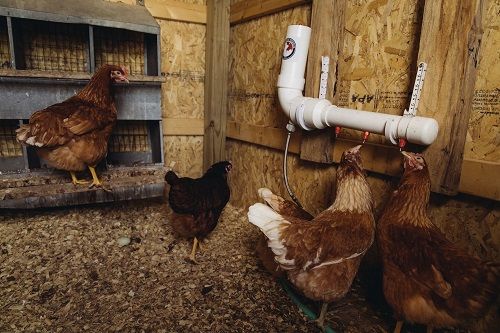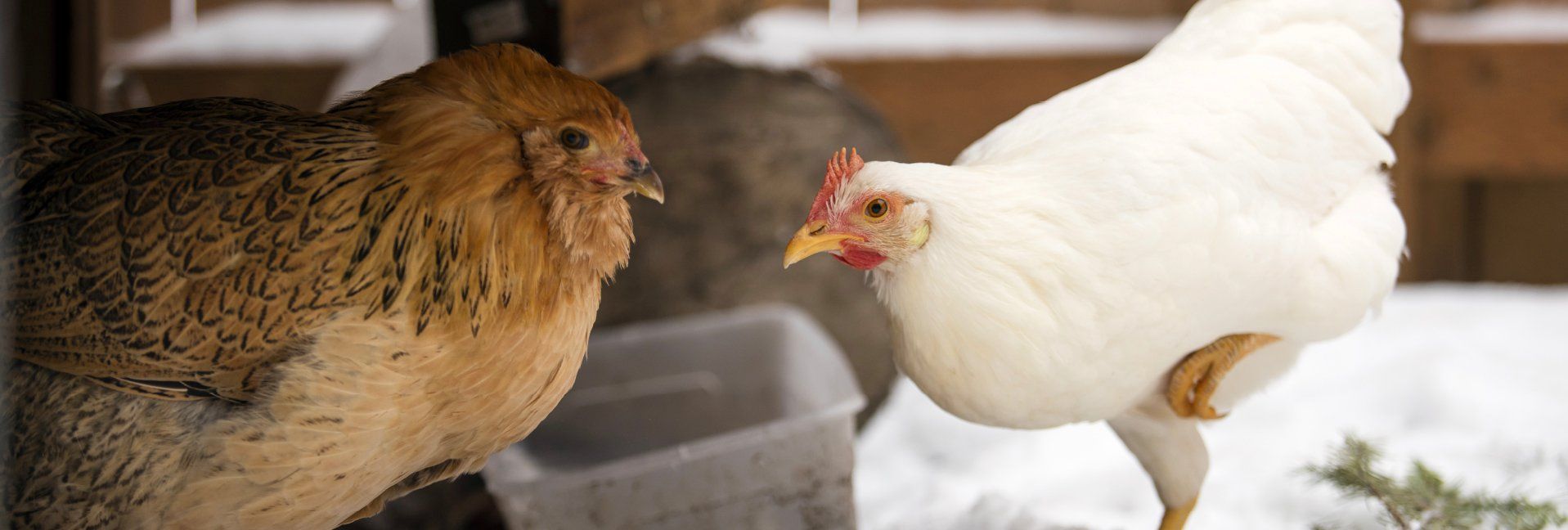Secure Runs vs. Free-Range
Evaluating the Risks and Rewards for Your Flock


Raising chickens involves management issues and complications. One of the largest is predators, and chicken keepers must decide whether to keep their birds in a chicken run or free-range them.
Attack by predators is the No. 1 cause of mortality in birds. Yet many folks opt to free-range their chickens so they can hunt for bugs and build a larger fenced-in area, allowing them to wander around an established predator-proof chicken coop. Others may use a chicken run attached to their coop for peace of mind. The run will be large enough to accommodate the number of chickens in their flock.
Some people are forced to use a chicken run and must follow certain guidelines set by a Homeowners Association or a city ordinance regarding chicken management.
Enclosed Run Versus Free-Range
Free-ranging your chickens provides them with several benefits. First, sunshine and vitamin D are essential for all creatures, big and small. Watching hens hunt for bugs and scratch in the dirt is one of the greatest joys of being a chicken keeper. Yet nothing is more terrifying than walking outside to do morning chores and discovering the remains of your chicken left by an overnight predator. Almost everything wants to eat your chickens.
Free-Range
If you free-range your birds, you can set up an electric fence to keep predators away. Stunned predators may not return. Chicken keepers use solutions like these to ensure their flock’s safety, as free-ranging hens have many advantages.
Plus, some breeds have better instincts than others.
Pros of free-range chickens:
- Encourages natural behaviors like scratching, foraging for bugs and dust bathing.
- Chickens tend to be happier and more active in open spaces.
- Lower feed costs as they supplement their diet naturally with insects.
Cons of free-range chickens:
- Higher risk of predation due to exposure to wildlife.
- There is a greater chance of chickens wandering away or getting hurt.
- Potential damage to gardens, landscaping or neighboring properties.
- Can expose chickens to diseases and toxins (e.g., pesticides, car antifreeze).
Enclosed Run
There is always one escape artist in the flock. Your favorite spicy chicken jumps over the fence every morning despite the 6-foot fence you built so your hens could free-range. With this in mind, many build enclosed chicken runs with overhead cover. Covering the top of the chicken run is the easiest way to keep out predators. Plus, there are numerous low-cost do-it-yourself ideas for chicken coops with runs.
Pros of a run:
- Protection from predators (foxes, hawks, coyotes).
- It prevents chickens from wandering into unsafe areas.
- Simplifies egg collection and monitoring of the flock’s health.
- Added protection from extreme weather.
Cons of a run:
- Limits the natural behaviors of chickens, such as foraging.
- Increased risk of overcrowding if space is too small.
- It can require more maintenance to keep clean.
Secure Fencing
Enclosed runs offer chickens a safe and controlled living environment, but they require careful attention to best practices. First and foremost, predator-proofing is essential. This includes using hardware cloth or welded wire with small gaps, burying fencing at least a foot underground to deter digging predators and securing the top of the run against aerial threats like hawks. Most predators like coyotes will dig for a few minutes and then try a different spot.
- Bury the wire underground at a right angle from the fence.
- Backfill dirt to cover the extended wire.
- Landscape around the perimeter to provide more resistance to digging and for shade.
Chicken wire is a poor fencing option.
Chickens also need adequate space to prevent overcrowding, which can lead to stress and aggression within the flock. A general guideline for a coop with an enclosed run is at least 3- square-feet per bird in the coop (larger breeds require more) plus run space, but more space is always better. Regular cleaning is equally important to minimize waste buildup, which can attract vermin and lead to harmful bacterial growth.
Unlike the confined safety of the run with welded wire, free-ranging exposes chickens to more significant risks, including predators that cannot be kept out by fences or netting. Because of these risks, chicken keepers must weigh the benefits of natural foraging and enriching activity against the heightened dangers. Understanding these threats is key to ensuring the safety of your flock.
What Is Killing the Chickens?
When chickens start dying unexpectedly, it’s crucial to identify the cause quickly to protect the rest of the flock. Predators are often the primary culprits, with foxes, raccoons and stray dogs capable of breaching inadequately secured runs. These attacks usually leave clear signs, such as missing birds or visible injuries.
Domestic dogs: Hunting depends on the dog’s breed and temperament.
Coyotes: During winter, they hunt in packs but attack in pairs during other seasons.
Bobcats: They will return for more prey and prefer to hunt at dawn and dusk.
Hawks: A missing chicken is the primary evidence of a hawk attack.
Raccoons: They are more likely to attack at night.
Possums: This critter generally kills one bird at a time.
Hybrid Approach
Free-ranging chickens offer benefits, including improved happiness, natural behaviors like foraging and lower feed costs since they can hunt for insects. However, this approach has significant risks, such as predators, wandering and potential exposure to diseases or toxic substances.
Some breeds may handle free-ranging better due to stronger survival instincts, but the threats from wildlife and environmental hazards can make this option challenging. Many chicken keepers opt for a hybrid approach and let their birds free-range for a few hours a day when someone is outside to supervise and scare away any potential predators.
Tags:Hands-on Help

Chicken Whisperer is part of the Catalyst Communications Network publication family.












